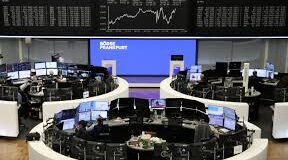Forecasting body blames growing risks of no-deal Brexit as it downgrades estimate
The British economy is heading for its worst year in almost a decade amid the growing risks from no-deal Brexit, according to a leading economic forecaster.
After official figures revealed zero growth in GDP in August, the EY Item Club said the economy would struggle to recover in the final months of the year owing to the increasing likelihood of Britain crashing out of the EU in less than six months’ time.
The group of economists, which is the only non-government forecasting organisation to use the Treasury modelling of the economy, said it had downgraded its growth forecast for this year and next as a consequence.
It forecast growth of 1.3% for the whole of 2018, down from a previous estimate of 1.4%. This would be the worst annual period for growth since the financial crisis. It also downgraded the outlook for the second quarter running.
EY Item Club forecast a modest recovery next year if there was a smooth Brexit deal, with growth of 1.5%, down from its previous estimate of 1.6%.
Economists have said failure to reach such a deal could significantly harm the UK economy, with the International Monetary Fund warning of “dire consequences” for growth.
The government’s economic forecaster, the Office for Budget Responsibility, last week raised the prospect of a no-deal scenario triggering border delays, companies and consumers stockpiling food and other supplies, and aircraft being unable to fly in and out of Britain.
The Item Club said Brexit uncertainties were influencing business investment decisions, but added that efforts to find alternative suppliers in the UK rather than the EU may lead to an increase in spending.
It also said weaker growth in the eurozone had sapped appetite for exports, as the world economy digests the impact of US import tariffs that have already begun to drag on economic activity.
Inflation is forecast to fall from about 2.7% to 2.3% by the end of the year, above the Bank of England’s target rate.
Consumer spending growth is estimated to remain limited as a consequence, as UK households remain under pressure from weak wage growth and relatively high levels of inflation.
Howard Archer, the chief economic adviser to the Item Club, said: “Heightened uncertainties in the run-up to and the aftermath of the UK’s exit could fuel business and consumer caution. This is a significant factor leading us to trim our GDP forecasts for 2018 and 2019.
“Should the UK leave the EU in March 2019 without any deal, the near-term growth outlook could be significantly weaker.”
 Weekly Bangla Mirror | Bangla Mirror, Bangladeshi news in UK, bangla mirror news
Weekly Bangla Mirror | Bangla Mirror, Bangladeshi news in UK, bangla mirror news







